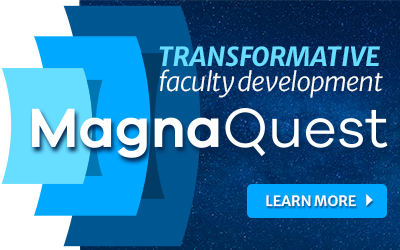Well-Being and Well-Thinking: How to Stay Healthy in Academia
This article first appeared in Academic Leader on March 16, 2020. © Magna Publications. All rights reserved. Resilience is about growing both personally and professionally when we face difficult situations. It is about coming out the other side as a stronger or more prepared person rather than bouncing back to...
Leading Your Academic Department Toward Inclusion: How to Ensure Faculty are LGBTQ+ Competent
During my six years at the University of Connecticut, I had the opportunity to interact with many different faculty members across our campus community. This was particularly true during my final two years, when I coordinated our Rainbow Center’s Out to Lunch (OTL) Lecture Series. The OTL Lecture Series—our center’s...
Establishing and Supporting a Faculty Mentoring Program
For many new hires, tenure-track or not, there isn’t a road map for navigating that challenging first year of teaching. A faculty mentor program can help ensure every new hire has a guide, friend, confidante, and role model. The end result of such a program should be a more confident...
Target Mentoring: A Tailored Mentoring Program for Faculty
t the University of Maine, my colleagues and I have conducted a lot of research on faculty mentoring. The campus-wide Rising Tide Center—funded originally by a National Science Foundation ADVANCE grant—has helped implement several kinds of mentoring programs across our campus, finding that a combination of mentoring programs is best...
Teaching and Learning Centers as Catalysts for Faculty Diversity Development
Consider the experience of Jordan, a fourth-year political science major, who was told by his professor that many African-American students do not pass her class (Brooms, 2017). This stereotyping can create a self-fulfilling prophecy, or what Claude Steele describes as a “stereotype threat,” which impacts students’ performance by challenging their...
Speed Mentoring
Mentoring is a common yet powerful way for people to learn a variety of personal and professional skills. Most adults can identify a person who, at some time in their lives, had a significant, positive influence on them. While some mentoring relationships are formal, with clear goals and regular meetings,...
How to Evaluate Your Faculty Development Services
Faculty developers across the nation are working on developing methods to evaluate their services. In 2010, the 35th Annual Professional Organizational and Development Network Conference identified assessing the impact of faculty development as a key priority. It was this growing demand that spawned my interest in conducting a 2007 statewide and...
A Centralized Approach to Supporting Experiential Learning
Wartburg College in Waverly, Iowa, has a centralized office to foster experiential learning across disciplines. This administrative structure, which grew out of a Lilly Vocation Grant, offers several advantages over more traditional, decentralized support structures.
I Love You, You’re Perfect, Now Change
An amazing metamorphosis sometimes affects academic leaders between the time they interview for the job and the time they begin their position. As candidates for the position, prospective administrators are usually overwhelmed by the quality of the students and faculty. They’re impressed by the curriculum and mission of the institution,...
Using Academic Retreats to Enhance Academic Affairs Performance
Every academic leader invests time in strategic planning groups, presidential cabinets, councils of department chairs, dean’s council meetings, and similar regularly scheduled meetings. Academic leaders occasionally leave the campus for meetings of professional societies or to participate with other academic leaders in retreats. What few institutional leaders do is develop...











